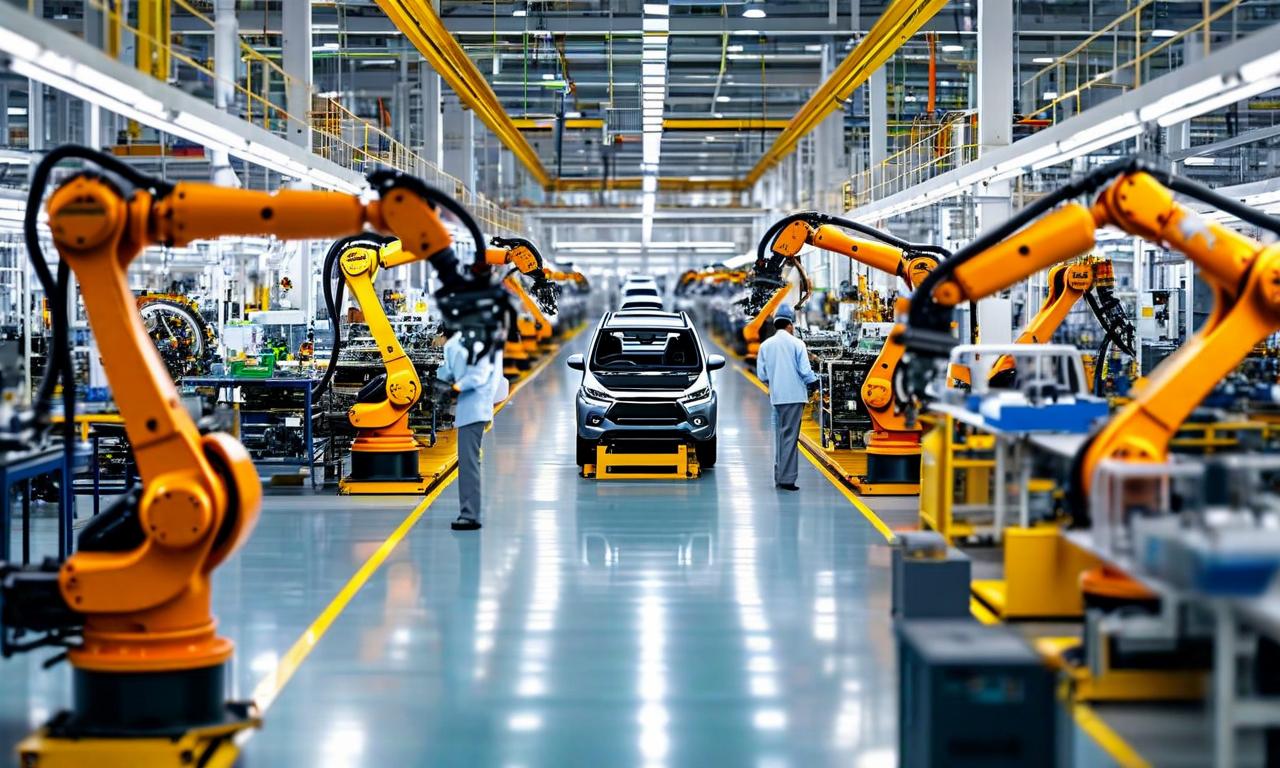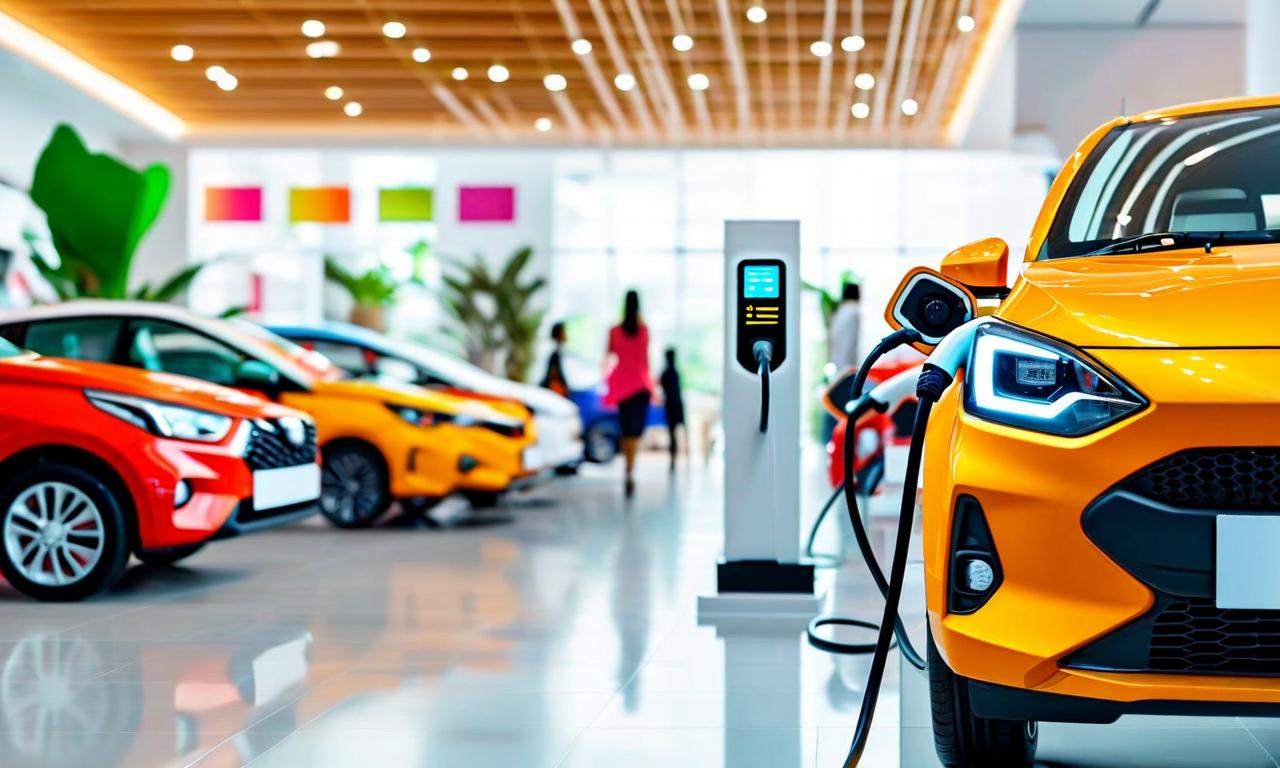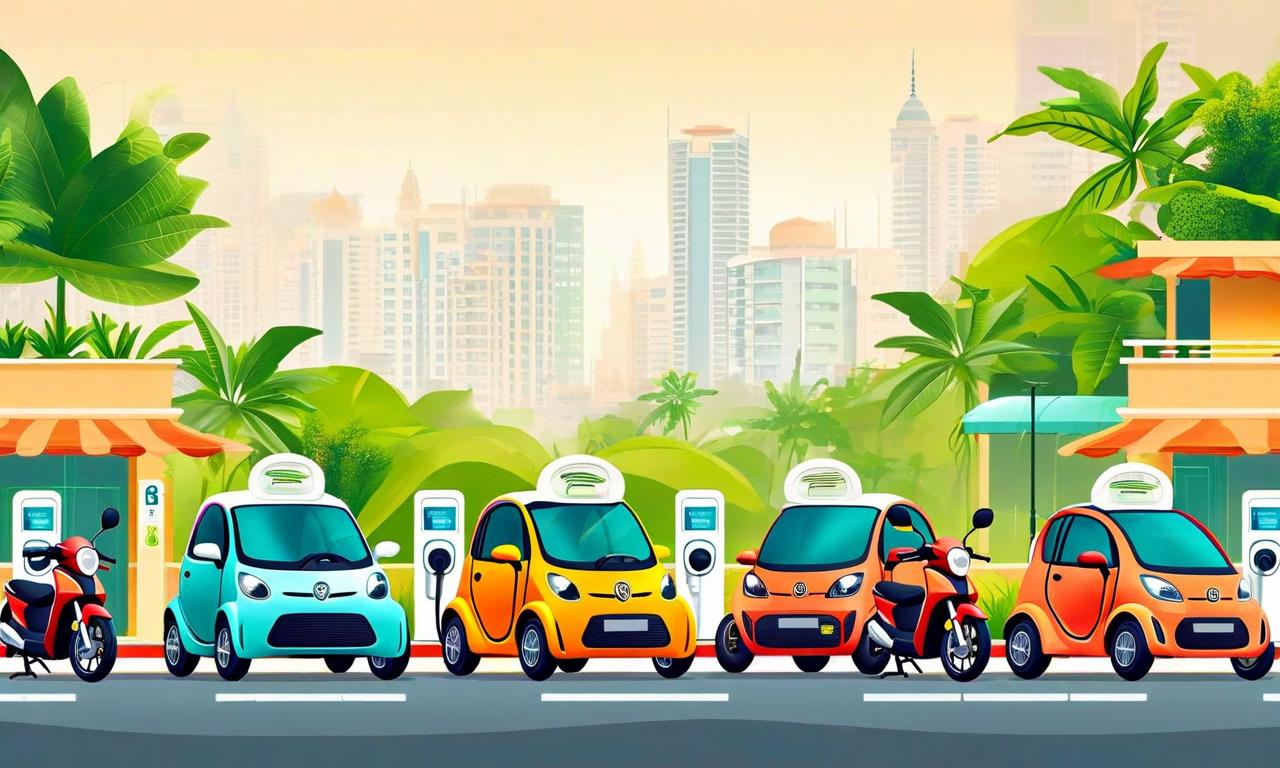Indian Auto Stocks Rally as BofA Raises Price Targets on Sector Upcycle
Indian automotive stocks experienced a significant surge following Bank of America's (BofA) bullish outlook on the sector. BofA increased price targets for multiple companies, citing the '5Cs of the auto cycle': credit, crude, cost, cash flows, and compliance. The two-wheeler market is evolving into an upgrader market, while the passenger vehicle segment is shifting from premiumisation to penetration. Companies receiving target price hikes include Eicher Motors, Maruti Suzuki, Mahindra & Mahindra, Bajaj Auto, Hero MotoCorp, TVS Motors, and Hyundai. Most stocks showed gains, with Ola Electric, Mahindra & Mahindra, and TVS Motors leading. The Nifty Auto index traded over 1% higher, outperforming the benchmark Nifty 50.

*this image is generated using AI for illustrative purposes only.
Indian automotive stocks experienced a significant surge following Bank of America's (BofA) bullish outlook on the sector. The positive sentiment was driven by BofA's decision to increase price targets for multiple companies, citing what it calls the '5Cs of the auto cycle': credit, crude, cost, cash flows, and compliance.
Two-Wheeler Market Transformation
BofA's analysis highlights a notable shift in the two-wheeler market. The sector is evolving into an upgrader market, moving away from the traditional focus on entry-level segment recovery driven by rural demand. This transformation suggests a changing landscape for two-wheeler manufacturers and potential opportunities in higher-end products.
Passenger Vehicle Sector Shifts Focus
In the passenger vehicle segment, BofA notes a pivotal change in market dynamics. The focus is transitioning from premiumisation to penetration. However, the brokerage emphasizes that product offerings and innovation remain crucial factors for success in this competitive market.
Companies Receiving Target Price Hikes
Several major players in the Indian automotive sector received notable target price increases from BofA. These include:
- Eicher Motors
- Maruti Suzuki
- Mahindra & Mahindra
- Bajaj Auto
- Hero MotoCorp
- TVS Motors
- Hyundai
Interestingly, while most companies received positive outlooks, Ola Electric was given an 'underperform' rating, despite a slight increase in its target price.
Stock Performance
The market responded positively to BofA's outlook, with several stocks showing significant gains:
| Company | :---: | Gain |
|---|---|---|
| Ola Electric | >3% | |
| Mahindra & Mahindra | ~2% | |
| TVS Motors | ~2% | |
| Bajaj Auto | ~1% | |
| Eicher | ~1% | |
| Hero MotoCorp | ~1% |
However, not all stocks benefited from the positive sentiment:
| Company | :---: | Loss |
|---|---|---|
| Hyundai | <1% | |
| Maruti Suzuki | <1% |
Sector-wide Impact
The broader impact of BofA's outlook was evident in the performance of the Nifty Auto index, which traded over 1% higher. This outperformed the benchmark Nifty 50, which saw a more modest gain of 0.40%.
The surge in automotive stocks, driven by BofA's optimistic view, underscores the potential for growth in the Indian automotive sector. As the industry continues to evolve, with shifts in both the two-wheeler and passenger vehicle segments, investors and industry observers will be keenly watching how companies adapt to these changing market dynamics.


























